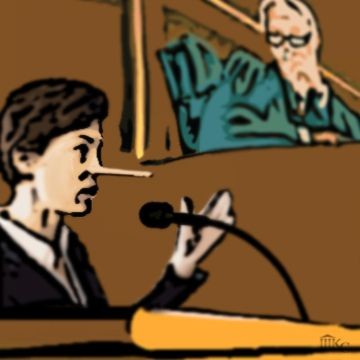Q. After testifying last month that she earned no income other than that reflected on the paystubs and tax returns we put into evidence, my client just told me that she makes extra money “under the table.” What are my duties to the client, to the Court and to the IRS?
A. Having enlisted your unwitting assistance in lying to the Court, you cannot bury your head in the sand or cite your duties to the client as a reason to remain silent.
Keeping the system honest trumps any duty to protect a client who worked to undermine it. Under Rule 3.3 of the Rules of Professional Conduct, “If an attorney has offered material evidence and comes to know of its falsity, the attorney shall take reasonable remedial measures.”
- Memorialize all conversations with the client in detailed memos to her file, specifying the date and time on which she disclosed the truth for the first time and all subsequent statements;
- Recite these details in a letter to your client which reviews the nature of all perjured evidence and testimony, together with the means of rectifying it, the legal and criminal consequences of perjury and of any refusal to correct it, and your ethical obligations in the event that she does not. This letter should mirror the advice you will provide in person, but also review the consequences she will face either way; and
- Absent extenuating circumstances, you should advise her of your need to terminate representation and you should follow court rules to do so once the matter has been rectified.
When a client uses you as an instrument of perjury, it would be unwise to maintain representation. As the adage goes, “Fool me once, shame on you; fool me twice, shame on me.” Don’t be a fool for a client who plays you like one.





